Snapshot Interview:
Janet Muchnik
Get inspired and learn a little bit more about your fellow VOSH-Illinois volunteers.
This month we are talking to Janet Muchnik
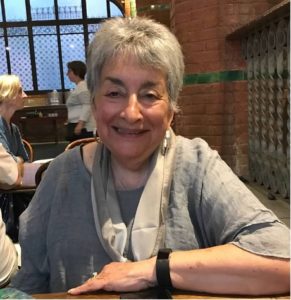
Janet has a Masters Degree in Public Administration. Her employment history includes 5 years as planner then Director of Planning for the City of Blue Island, 2 years as Economic Development Coordinator for the Community and Economic Development Association of Cook County, 7 years as City Manager of Country Club Hills and 10 years as Village Manager of Park Forest. During those years, she was chairman of one Federal commission, the Illinois and Michigan Canal National Heritage Corridor, on the National Board of Directors of the American Planning Association and Chairman of the Fair Housing Coalition of the Southern Suburbs. Prior to her public employment, she was President of the Board of Education of School District 163 and a member of the Board of Trustees of the Village of Park Forest.
In retirement, Janet has become very active with the Tall Grass Arts Association, serving for ten years as its president, and currently serving as chair of the annual Park Forest Art Fair. The association operates a gallery with exhibits that change every six weeks a school that offers classes for adults and children and the Park Forest Art Fair, now entering its 65th year.
Janet has also volunteered with VOSH and has participated in missions in Grenada, Guatemala, Bolivia, Cameroon, etc. She also is an avid reader and loves to travel.
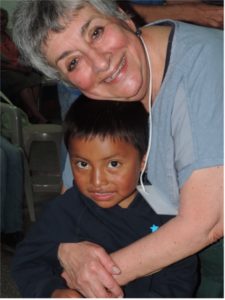
“When people hear about the VOSH missions, they typically say, ‘Oh how wonderful of you.’ That is not how I feel. I feel I have been very fortunate to have been able to go on missions, to meet the wonderful people who volunteer to organize, donate their time as doctors and help in so many ways…and to see the faces of the people, faces that light up because they can, for the first time, really see.”
What motivated you to initially become involved in VOSH?
Our dear friends, Sol and Marilynn Tannebaum were active in VOSH. They often spoke about the missions to other countries and encouraged us to try it. I missed the first one in which Mel participated but joined the next several. It is among the most rewarding experiences in my life.
How long have you been active in VOSH IL and what has motivated you to stay involved all these years?
I have been involved with missions for about the past 12 years. I believe I have been to 6-7. What motivated me to stay involved was the hundreds of wonderful experiences I have had on the missions: seeing a child who seemed to have some sort of nervous condition settle down because he could see the world clearly for the first time, seeing what the optometrists call “the smile” when an adult or child puts on glasses for the first time, receiving a hug from one person after another because of their new glasses…those are the things that inspire and keep volunteers coming back over and over.
What have been your greatest accomplishments in VOSH-IL or as an optometrist (or volunteer) in general?
Some of the clinics have been very labor intensive. In Cameroon, for example, as we walked down to the clinic from where we were staying, the line of people stretched into what seemed like a mile long. People had created plastic shelters and brought cooking equipment to ensure they were seen. None of us took lunch breaks and we worked far into the evening. So, my accomplishment was being able to work and be useful.
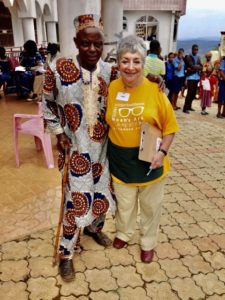
What have you learned from being involved in VOSH-IL?
I have learned that much of what we take for granted in the US is a luxury in many parts of the world. To tell a person he needs cataract surgery is very sad when, even though it is much cheaper than in the US, it costs a year’s salary for many poor people. I liked the missions best in which ophthalmologists traveled with us and made cataract surgery possible on the spot.
Tell us a bit about your mission trip clinic(s)? What are the biggest challenges and rewards of participating in VOSH clinics?
The biggest challenge of a clinic is, sometimes, the facility itself which may lack adequate space and requires much creativity in setting up so that the people can go from station to station. In my first clinic, the eye charts were out-of-doors on a porch. One of the doctors measured off 10 feet for me but neglected to tell me that the chart had to be adjusted since the distance required in reading the chart was 20 feet. One of the doctors caught what I was doing wrong and adjusted my chart.
As I said, the reward is seeing so many people, some of whom are 60+ and have never seen an eye doctor, put on a pair of glasses and burst into a huge smile. You never forget that look.
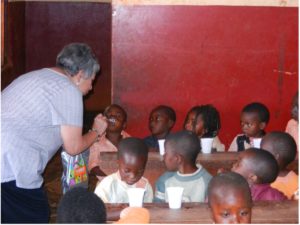
What have been the biggest changes in VOSH-IL since you first became involved?
The biggest change I have seen is the effort to make eye care sustainable within countries. In my last few missions, we traveled with equipment to make glasses. Some local people (I assume they were eye doctors) were trained in the process and the equipment was left for them to use. I am also aware of a program in which young, graduating optometrists in this country are traveling to other countries to improve the training the people there are receiving in optometry school.
What do you see as VOSH-IL biggest challenges in the next 5 years and how to address them?
I am not as involved as my husband but I hope the efforts to expand skills and sustainability will continue.
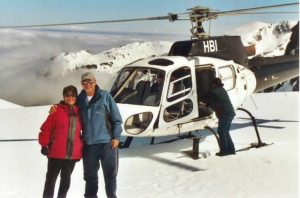
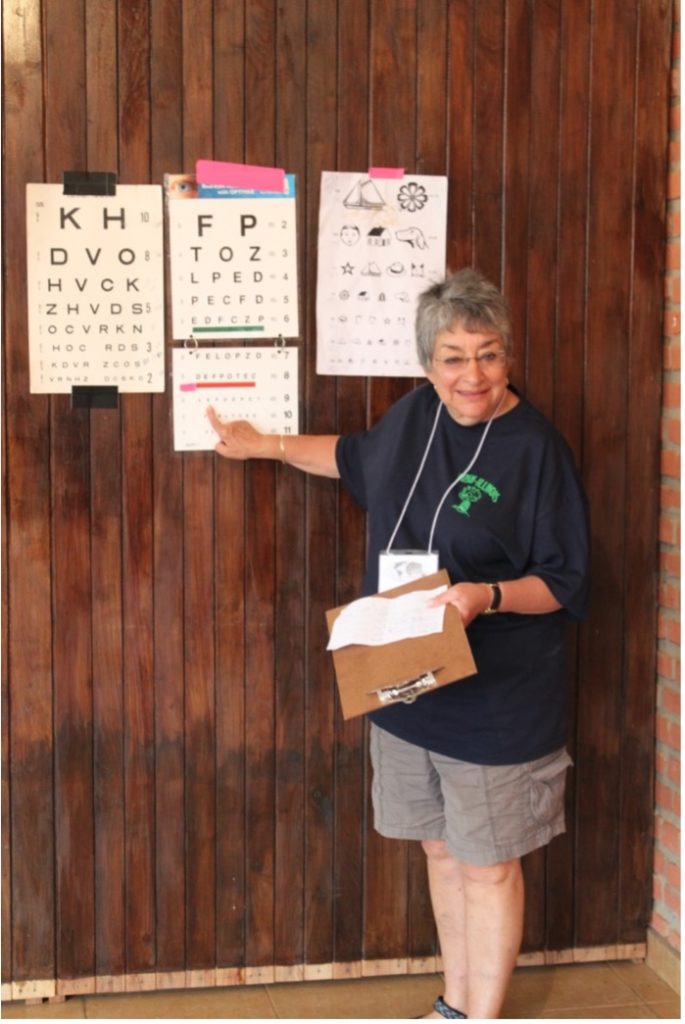
What advice would you give to student ODs who are interested in being involved with VOSH -IL?
I would encourage every student to go on a clinic trip. The group becomes very cohesive and supportive of one another quickly. The challenges of testing and prescribing for hundreds of people per day will make their office practice look like a walk in the park. But the level of joy they will see in the faces of the people who come to a mission for help will also be unmatched elsewhere.
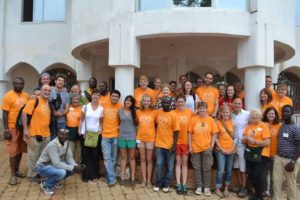
Do you work? Retired? What else do you do other than VOSH-related activities? What do you do in your spare time? What do you do for fun?
I am a retired City Manager. I am deeply involved with an arts association that operates a gallery with shows that change every six weeks, an art school, and an art fair. Currently I am chair of the art fair and am in the process of curating a show for the 2022 year. I love to read and participate in a book club. I enjoy going to the theater and subscribe to three, two in Chicago and one local. I also enjoy going to the opera. And, I love to travel. I particularly love going to stay in a place for a week or two and getting to do the things you do not do as a “hotel tourist”: shopping in the grocery stores or outdoor markets, walking around cute towns before and after the tourist buses, eating in places that the locals frequent.
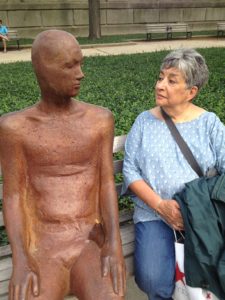
Do you have any heroes? Why?
When I worked in local government, my heroes tended to be the women who made a difference: people like Eleanor Roosevelt and Ruth Bader Ginsberg. During this pandemic my heroes have become the teachers who were thrown into the process of teaching on Zoom and did it, the nurses who worked long, heart wrenching shifts and held more dying patients in their arms than they expected to see in a lifetime, the paramedics and other emergency personnel and the people who risked their lives to keep the grocery stores open, the garbage collected, the mail delivered and so much more.
How have you been volunteering during COVID?
I have continued to volunteer for the arts association, writing grant applications, for example, to keep it afloat.
Please free to add any other comments that you would like.
When people hear about the VOSH missions, they typically say, “Oh how wonderful of you.” That is not how I feel. I feel I have been very fortunate to have been able to go on missions, to meet the wonderful people who volunteer to organize, donate their time as doctors and help in so many ways…and to see the faces of the people, faces that light up because they can, for the first time, really see.
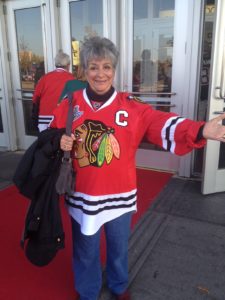
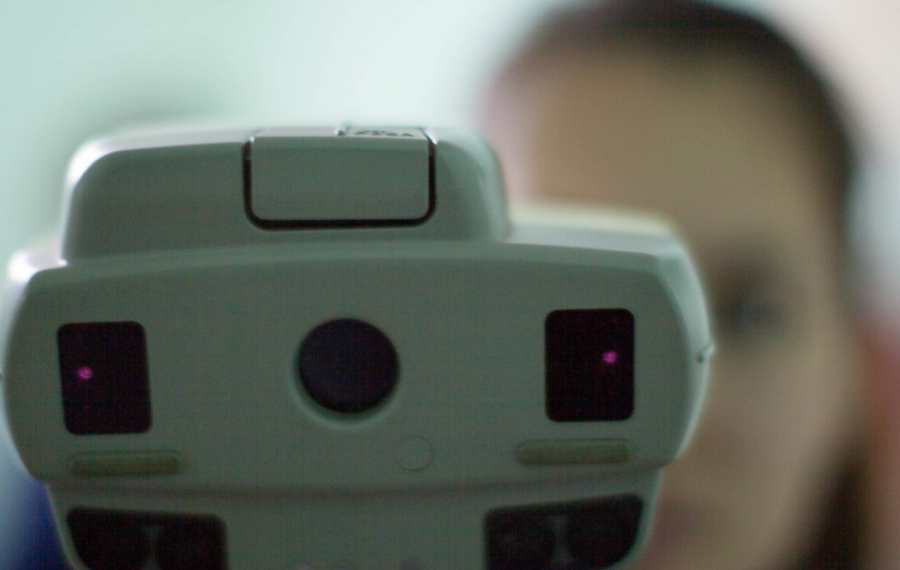

Comments 5